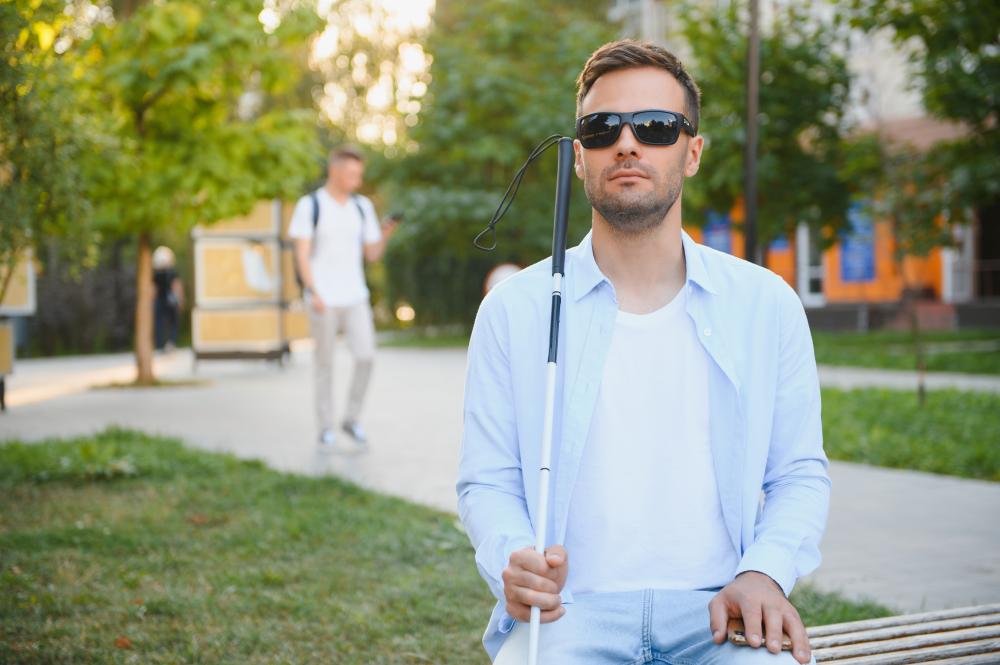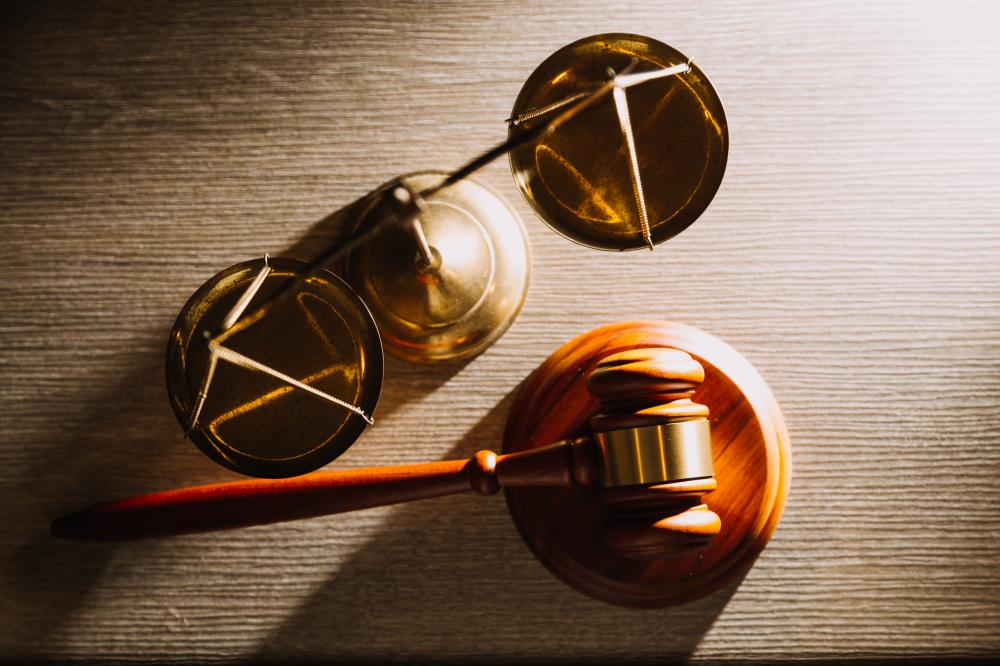
Understanding Solar Blindness
As advocates at Sun Blindness Injury, we’re uniquely positioned to address the impacts of solar blindness, a condition primarily resulting from direct exposure to the sun’s rays without adequate eye protection. Our focus lies in supporting those who have suffered eye injuries due to using non-standard sunglasses, especially during solar eclipses, a time when the risk of such injuries peaks.
Solar blindness, or solar retinopathy, arises when the retina is damaged by exposure to solar radiation. It’s worth noting that the condition isn’t immediate; symptoms can develop hours or even days after exposure. These symptoms include blurriness, central vision loss, and changes in how colors are perceived. Such damage is often irreversible, highlighting the crucial nature of preventative measures.
The Importance of Quality Sunglasses
In battling solar blindness, the quality of sunglasses cannot be overstated. Sunglasses that meet the American National Standards Institute (ANSI) criteria are essential for providing adequate protection against the sun’s harmful ultraviolet (UV) and infrared (IR) radiation. The ANSI rating ensures that eyewear has been tested for safety and effectiveness. Wearing sunglasses without this certification, especially during high-risk activities like viewing a solar eclipse, significantly increases the risk of sustaining eye damage.
Our mission is to educate the public about the critical difference between high-quality, certified sunglasses and those that are fake or counterfeit. Counterfeit sunglasses may not offer the necessary UV protection, falsely luring wearers into a sense of safety while their eyes are at significant risk.
Recognizing and Responding to Symptoms
Identifying the symptoms of solar blindness early on is crucial for mitigating long-term damage. If you’ve recently been exposed to the sun’s rays without proper protection and are experiencing symptoms such as vision distortion, a loss of central vision, or changes in how you see colors, it’s imperative to seek professional medical advice immediately.
At Sun Blindness Injury, we stress the importance of a comprehensive eye examination by a qualified eye care professional if any of these symptoms present themselves. Early diagnosis and treatment can play a pivotal role in the overall outcome for those affected by solar blindness.
Legal Support and Compensation
For individuals who have suffered from solar blindness as a result of using defective or incorrect sunglasses, seeking legal recourse is a viable option. Our team at Sun Blindness Injury is dedicated to providing expert legal assistance, aiming to secure compensation for medical expenses, pain and suffering, and other damages related to eye injuries.
Our step-by-step guide is designed to assist in gathering evidence related to the defective eyewear and navigating the legal process. Partnering with experienced personal injury attorneys, we work tirelessly to hold negligent manufacturers accountable for distributing unsafe sunglasses.
The Significance of Education and Awareness
Raising awareness about the dangers of solar blindness and the importance of wearing approved sunglasses is central to our mission. By disseminating information on how to select the right sunglasses and the potential risks of neglecting to do so, we hope to reduce the incidence of solar blindness significantly.
- Always look for the ANSI rating when purchasing sunglasses.
- Be skeptical of too-good-to-be-true deals on eyewear, as these could be counterfeit.
- Understand that not all sunglasses are created equal; the right protection is key.
By advocating for these practices, we aim to create a more informed public capable of making safer choices for their eye health during solar events and everyday sun exposure.
Our Commitment to Prevention and Support
At Sun Blindness Injury, our commitment goes beyond offering legal support. We’re devoted to preventing eye injuries caused by unsafe eyewear and ensuring that those affected receive the care and compensation they deserve. Through education, advocacy, and legal action, we strive to protect individuals from the devastating effects of solar blindness.
If you or someone you know has been affected by using incorrect sunglasses, we encourage you to reach out. Together, we can work towards a future where eye health is a priority, and solar blindness is a rare occurrence.
Connecting with Sun Blindness Injury
For anyone seeking assistance or more information on preventing solar blindness, Sun Blindness Injury is here to help. Contact us for expert advice, support, and representation in eye injury cases related to solar blindness. Our team of legal professionals is committed to ensuring justice and promoting eye safety for all.

Can you recover from solar retinopathy?
Recovery from solar retinopathy can vary significantly between individuals, largely depending on the severity and duration of exposure to harmful solar radiation. In some cases, people may experience a gradual improvement in vision over a period of weeks to months. Our bodies have a remarkable ability to heal, and the retina can partially recover from mild damage. However, it’s crucial to understand that severe cases can lead to permanent visual impairment. We’ve seen cases where early diagnosis and appropriate treatment have led to significant vision improvement. It’s a reminder of why wearing certified sunglasses and seeking immediate medical attention if you’ve been exposed to the sun’s rays without adequate protection is so important.
Can solar eclipse blindness be cured?
The term ‘solar eclipse blindness’ refers to the eye damage that occurs from looking at the sun during a solar eclipse without proper eye protection. This condition, technically known as solar retinopathy, cannot be “cured” in the traditional sense because if the retina is severely damaged, the treatment options are limited. However, not all hope is lost. Treatment and management strategies can sometimes help improve symptoms and prevent further damage. For example, we’ve supported individuals in accessing therapies and adaptive technologies that enhance their remaining vision. Always remember, prevention is the best approach. Using solar eclipse glasses that meet international safety standards is essential during these celestial events.
How many people have gone blind from solar eclipse?
Exact numbers are hard to come by, but instances of vision loss due to solar eclipse viewing without proper protection do occur. For instance, following the 1999 solar eclipse in the UK, hospitals reported about 70 cases of eye damage. Not all of these resulted in total blindness, but many involved some degree of long-term vision impairment. It’s a stark reminder of the critical importance of eye protection during a solar eclipse. Our mission is to prevent such tragedies by raising awareness about the correct use of solar eclipse glasses.
How long do you have to look at the solar eclipse to go blind?
Damage from viewing a solar eclipse can occur in a matter of seconds. There is no “safe” duration for looking at the sun without proper eye protection. The retina can be damaged very quickly, and because it doesn’t have pain receptors, you won’t feel the harm being done. This is why we strongly advocate for wearing eclipse glasses throughout the entire eclipse if you plan to look directly at the event. Even a brief glimpse can result in permanent damage, a risk not worth taking.
Can individuals who have suffered from solar blindness due to defective sunglasses seek compensation?
Yes, if someone has suffered eye damage as a result of using defective or incorrect sunglasses, there is a possibility to seek compensation. We’ve assisted many individuals in this situation. The key is establishing that the eyewear failed to provide the necessary protection as advertised. This involves gathering evidence, such as the sunglasses in question, purchase records, and medical reports detailing the eye damage. Cases like these underscore the importance of purchasing eyewear from reputable sources and ensuring they meet safety standards. Remember, your eyesight is invaluable; investing in certified protection is essential for safeguarding it against harmful solar radiation.
Resources
- American Optometric Association (AOA) – The AOA provides valuable information on eye health, including the importance of wearing quality sunglasses to protect against solar blindness.
- AOA – UV Protection – Learn more about the dangers of UV radiation and how to select sunglasses that provide adequate protection for your eyes.
- Centers for Disease Control and Prevention (CDC) – Eye Health and Safety – The CDC offers resources on eye health risks, including the impact of solar radiation on vision.
- National Eye Institute (NEI) – The NEI provides extensive research and information on eye diseases and conditions, including solar blindness and the importance of early detection and treatment.
- Prevent Blindness – This organization focuses on raising awareness about eye health and advocating for the prevention of vision loss, including from conditions like solar blindness.